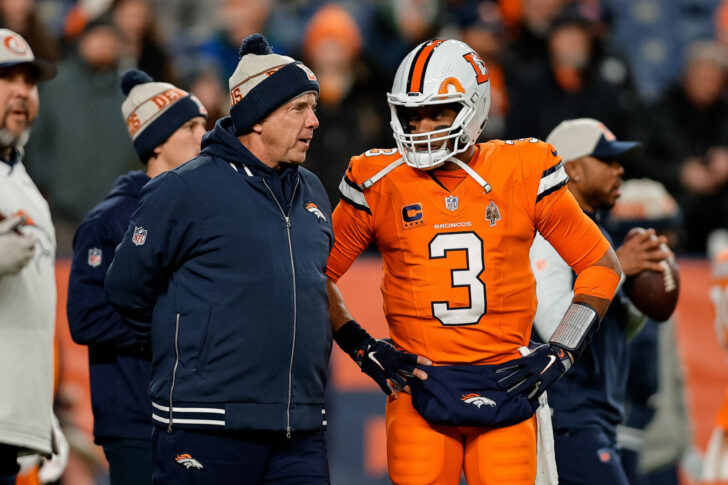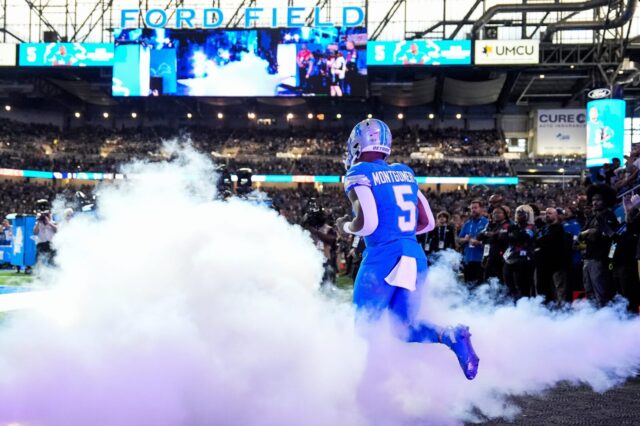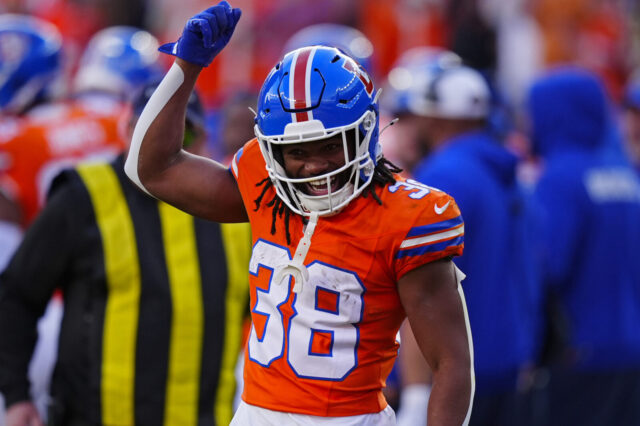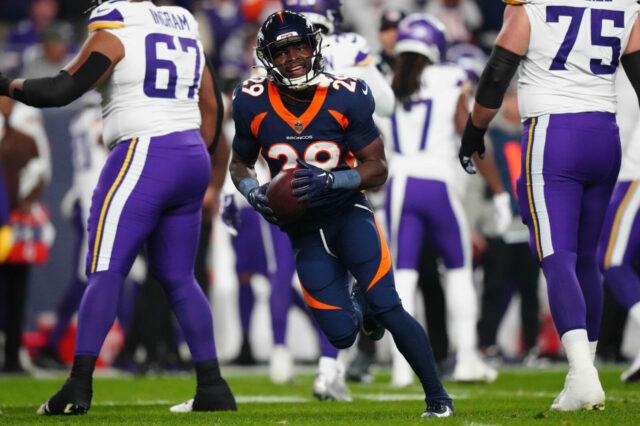After Sunday’s loss to the New England Patriots, the Denver Broncos are entering a crucial time period as they prepare for the final two weeks of the season. Major questions arise about the future direction of the team led by head coach Sean Payton and what he plans to do with the offense and Russell Wilson.
Is the Russell Wilson, Sean Payton dynamic sustainable?
For as much flack and criticism Russell Wilson has received during his first two seasons as a member of the Denver Broncos, not everything should be placed on his shoulders.
After the Broncos hired Sean Payton, the biggest question coming into the season was whether or not Payton could design an offense around what Wilson does well while amplifying the strengths of other personnel groups.
Wilson hasn’t been the reason Denver has lost games this season, but there are valid questions to ask whether or not his style of play, combined with Payton’s offensive mindset, is sustainable. The Broncos’ offense has been abysmal this year in a lot of major categories, including third down, and they’ve struggled at times to run the ball effectively.
When Wilson can escape the pocket and move around, things have been good for Denver’s offense but when the team can’t run the ball effectively, opposing defenses have found an easier route to slowing down their rhythm.
The Patriots did that on Sunday, sacking Wilson five times and shutting down their rushing attack by holding them to 83 total yards on the ground. Payton said in his post-game press conference that New England played a lot more zone coverage than they anticipated, which led to Wilson having to check it down on a large portion of his passing attempts, excluding some of the explosive, out-of-pocket plays he made in the fourth quarter.
“I think they played a little bit more zone tonight than we expected in weeks past,” Payton said. “They do a great job in a number of coverage looks. Some of that would be a result of what we were getting coverage-wise. I just felt the protection was OK. We were under duress, so sometimes you are looking for an outlet. Until I see the film it would be hard to say.”
This is where the sustainability question comes into play. If defenses are dictating what the Broncos offense can or will do, that’s a problem. While Payton has built this offense around some of the things Wilson has done well, the operation and performance by Wilson and Payton as a play-caller have been far too inconsistent.
Denver’s offense either throws it short behind the sticks to the outside or in the flat, or they take the home run shots downfield. There is no consistent presence of an intermediate passing game and it’s making the offense one-dimensional. That’s not just on Wilson himself; that’s also on Payton as a play-caller.
Will Payton have enough patience to try to run it back and build even further with Wilson, or could he look to move on? The latter is a very real possibility, depending on how Payton feels about his vision for the team moving forward.
This conversation is a big part of the dialogue in Broncos Country right now, and Denver has time to make a decision. When the fifth day of the new league year rolls around in March, Wilson’s additional $37M guarantee will kick in on top of his already guaranteed $39 million.
If Denver decides to move on from Wilson, they would have to endure the $39 million he’s already guaranteed. That would then add to a list of ripple effects that would impact the team’s ability to sign potential free agents or maneuver their salary cap.
As it stands today, the Broncos are projected to have around $3.7M in cap space in 2024, according to Spotrac. If Denver were to release Wilson before next season, their estimated cap space would be $-13.2M.
If this is something that’s in the cards for the Broncos, they could ask several players to restructure their contracts and could potentially move on from some players to reduce the cap hit. As of right now, the rumblings of a potential $240M league-wide salary cap aren’t guaranteed, but they could help Denver offset some of the negative effects.
It’s important to reiterate that Wilson doesn’t shoulder all of the blame for the offense’s struggles; it’s shared with Payton and other circumstances. This sport can lead to fans becoming hyper-fixated on singular blame when the reality is Denver’s offense has a multitude of problems, and blame can be collective.
Regardless, this will be the biggest question for the Broncos as they approach the offseason, and that clarity could come in the final two weeks. If Denver and Payton are adamant about moving on from Wilson after the season, do they play him in the final two games with the risk of injury, which would also guarantee his contract?
Keep in mind, the Las Vegas Raiders did something similar last season with Derek Carr. Who was the quarterback who stepped in? Jarrett Stidham.



